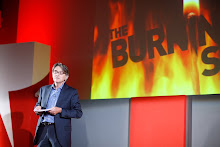The President of Rwanda Paul Kagame is my my first guest at LSE this term. His schedule includes an address to the centre on development, climate change and human rights. There has been some controversy around the visit. Some people are critical saying he has committed human rights violations. Why have I invited him to speak at my centre?
The first point to note is that the President has been elected by an overwhelming majority of his people. The Foreign Office noted some problems with that election but overall comments that they were 'generally well-run and orderly'. The elections were held under a constitution that had been agreed by referendum, again by a large majority. This constitution (2003) followed a long period of government in which power had been shared under the Arusha accords (1993).
While in power, Paul Kagame has overseen the establishment of a National Human Rights Commission. He has also announced a National Human Rights Campaign, and this year Rwanda abolished the death penalty. Though his country remains very poor, the Foreign Office comments that 'since 1994, [Rwanda] has made significant progress in uplifting the traditionally poor socio-economic indicators.' Enrolment in primary school is now at 94%.
Of course there is a history of violence in Rwanda. Kagame had to leave the country with his family as a result of attacks on the Tutsi people in the early 1960s. After the 1994 genocide, many of those responsible fled to Zaire (as it then was) from which some at least launched attacks into Rwanda. The Rwandan army invaded the country twice (1996 and again 1998). I appreciate that not all would agree with the entirety of the official claim that Rwandan forces withdrew in 2002, or that these incursions were solely to deal with attacks by exiled Hutus. But that there were attacks and that they were perpetrated by people who had already been intimately involved in the killing of some 800,000-1m people cannot be denied.
President Kagame is not an indicted war criminal, though there are French moves to have him prosecuted. (France has long been involved in the region and the recent opening of archives has revived questions of the exact extent of its support for the leadership that perpetrated the genocide in 1994).
President Kagame comes to the Centre to speak about development and human rights in the context of climate change. He is the African Union spokesperson on climate change. The President has not asked to control the composition of the audience and is aware there is a question and answer session afterwards: I understand he is prepared to answer whatever comes from the floor. In the spirit of open debate I would ask those sceptical of the President to come, to listen and then to make their point.
Thursday, 4 October 2007
A Comment on The Visit of President Kagame to The Centre For The Study Of Human Rights
Labels:
african union,
climate change,
human rights,
LSE,
president kagame,
rwanda
Subscribe to:
Post Comments (Atom)

1 comment:
Thank you for your nice posting.
it is really helpful to us.
such a nice topics.
Bathmate
Post a Comment